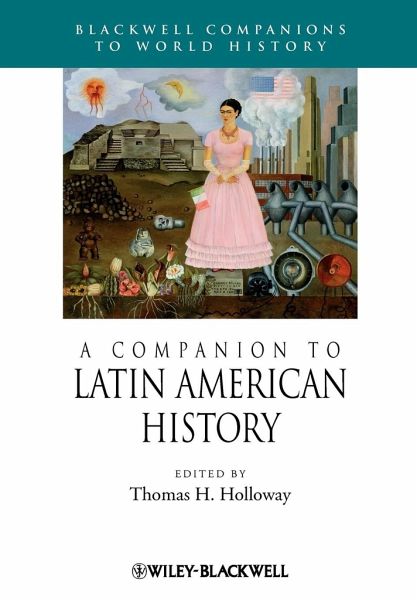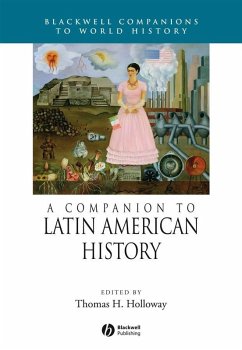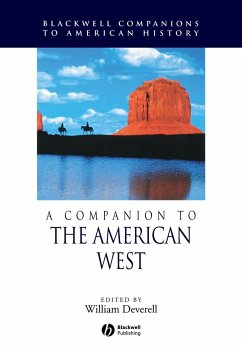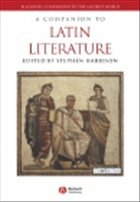
A Companion to Latin American History

PAYBACK Punkte
29 °P sammeln!
The Companion to Latin American History collects the work ofleading experts in the field to create a single-source overview ofthe diverse history and current trends in the study of LatinAmerica.Presents a state-of-the-art overview of the history of LatinAmericaWritten by the top international experts in the field28 chapters come together as a superlative single source ofinformation for scholars and studentsRecognizes the breadth and diversity of Latin American historyby providing systematic chronological and geographicalcoverageCovers both historical trends and new areas of interest
The Companion to Latin American History collects the work ofleading experts in the field to create a single-source overview ofthe diverse history and current trends in the study of LatinAmerica.
Presents a state-of-the-art overview of the history of LatinAmerica
Written by the top international experts in the field
28 chapters come together as a superlative single source ofinformation for scholars and students
Recognizes the breadth and diversity of Latin American historyby providing systematic chronological and geographicalcoverage
Covers both historical trends and new areas of interest
Presents a state-of-the-art overview of the history of LatinAmerica
Written by the top international experts in the field
28 chapters come together as a superlative single source ofinformation for scholars and students
Recognizes the breadth and diversity of Latin American historyby providing systematic chronological and geographicalcoverage
Covers both historical trends and new areas of interest












